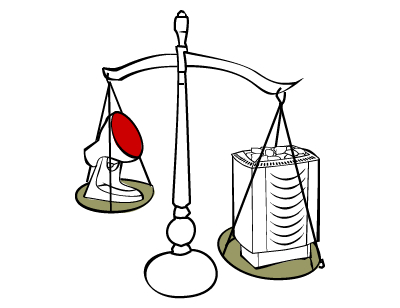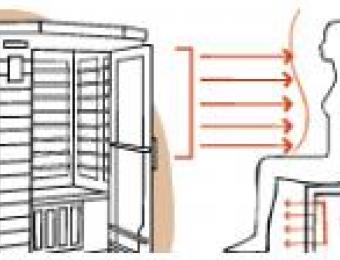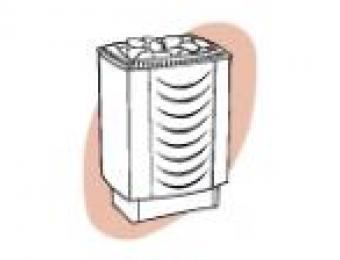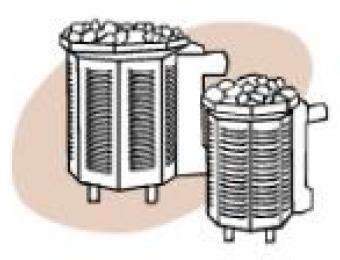Energy efficiency in saunas is dependant on a number of factors: fuel, temperature settings, the size of the room and its frequency of use. There are some basic considerations you can apply to your selection of sauna though to ensure that your sauna is as efficient as it can be.

Energy efficiency of different saunas
Electric sauna heaters are less energy effiicient than comparable gas models, simply because the production of electricity creates more CO2 than gas does. Gas heaters are relatively hard to find though, so you may not have many options to choose from. The same goes for electric steam generators used in steam rooms. These are similar to electric hot water tanks in the way they work, which are notoriously inefficient and expensive to operate.
A wood fired heater could be better or worse for the environment than other options, depending on where the wood has come from. If it has come from renewable sources, then it is relatively low impact. If not, the opposite is true. Burning wood inevitably contributes to CO2 emissions.
Far Infrared sauna heaters
The most efficient type of sauna heater currently available is the Far Infrared (FIR) sauna. Though it uses electricity, it has a fraction of the warm up time (around 10 minutes as opposed to 40-60 for a standard sauna), and wastes no energy in heating up the air as it warms you directly. Because it heats you faster and you sweat more, usage times are also usually shorter so less power is used in the session.
Higher temperature settings and sustained usage will increase electricity consumption though. This may be unavoidable in a larger sauna, as you will need a higher overall temperature to warm all the areas in the sauna evenly. Another thing to keep in mind is how efficient the FIR panels you you choose are. Inexpensive and cheaply made FIR sauna panels are likely to provide far poorer energy efficiency - it's well worth doing a little research to ensure that you're investing in efficient infrared panels.
Keeping it hot
One last thing to keep in mind: if a sauna is used often by different people, it's more efficient for them to use it at around the same time to avoid having to heat up the sauna from a cold state.





